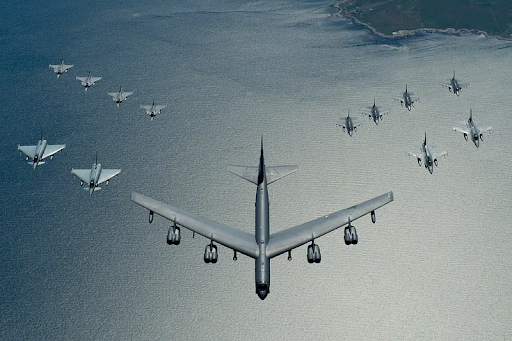In a major development for Taiwan’s security posture, the United States Pentagon has officially confirmed the sale of a sophisticated air defense system worth nearly $700 million that has been operationally tested in Ukraine’s defense against Russian aggression. This announcement represents the second significant weapons approval for Taiwan within just seven days, pushing the total value of recent military sales past the $1 billion threshold. The decision demonstrates Washington’s continued resolve to strengthen Taiwan’s defensive capabilities despite predictable opposition from Beijing.
The system being provided is known as the National Advanced Surface-to-Air Missile System, a medium-range air defense platform manufactured by American defense giant RTX. This technology will make Taiwan only the third Indo-Pacific nation to operate such systems, following Australia and Indonesia. The overall agreement includes three NASAMS units, which form a component of a much larger $2 billion military sales package that was initially announced by the United States government last year. The Pentagon’s statement revealed that RTX has secured a firm fixed-price contract for delivering these systems, with the entire procurement process scheduled for completion by February 2031, and funding of approximately $698.9 million being allocated from fiscal year 2026 foreign military sales accounts specifically designated for Taiwan.
The NASAMS technology has earned its reputation through actual combat usage in Ukraine, where it has been deployed to defend against Russian aerial attacks, showcasing its reliability and effectiveness under real-world wartime conditions. This proven track record has generated substantial international interest in the system, with demand increasing significantly among nations seeking robust air defense solutions. Speaking at an American Chamber of Commerce event in Taiwan, Raymond Greene, who serves as America’s unofficial ambassador to Taipei, stated unequivocally that American commitments to Taiwan remain rock solid and will continue to be so. He highlighted that these promises are being supported by concrete measures, particularly through expanding cooperation in defense industry matters, all aimed at helping Taiwan maintain peace through strength and preparedness.
The arms sale announcement comes on the heels of another major approval last Thursday, when the United States government sanctioned the sale of $330 million worth of fighter jet parts and aircraft components to Taiwan. This marked the first significant weapons transaction approved since President Donald Trump commenced his current term in January, eliciting gratitude from Taiwanese officials while provoking sharp criticism from Chinese authorities. China maintains its long-standing position that Taiwan is an integral part of Chinese territory, a claim that Taiwan’s government firmly disputes, asserting its right to self-governance and democratic independence. These military sales are occurring during a period of heightened diplomatic tensions that extend beyond just the Beijing-Taipei relationship to also involve Japan, as competing territorial claims in the East China Sea create additional points of conflict.
The regional security situation has witnessed several concerning incidents in recent days. Chinese coast guard ships recently transited through waters surrounding islands in the East China Sea that are controlled by Japan but claimed by China, raising concerns in Tokyo. Additionally, Japan deployed fighter jets after detecting a Chinese drone operating in the airspace between Taiwan and Yonaguni, Japan’s westernmost island, in what Japanese officials viewed as a provocative act. Taiwan’s Defense Minister Wellington Koo responded to these developments by calling on China to renounce the use of force in resolving disagreements. Taiwan is actively pursuing military upgrades across multiple domains, including an ambitious program to build its own submarine fleet to protect vital sea lanes that are essential for the island’s economic survival. Chinese military forces maintain a near-constant presence around Taiwan, conducting operations that Taipei characterizes as “grey zone” warfare intended to probe defenses and wear down Taiwan’s military resources. Despite the absence of formal diplomatic recognition, United States law obligates Washington to ensure Taiwan has access to the weapons and equipment needed for its defense, a policy that remains a persistent irritant in US-China relations.


